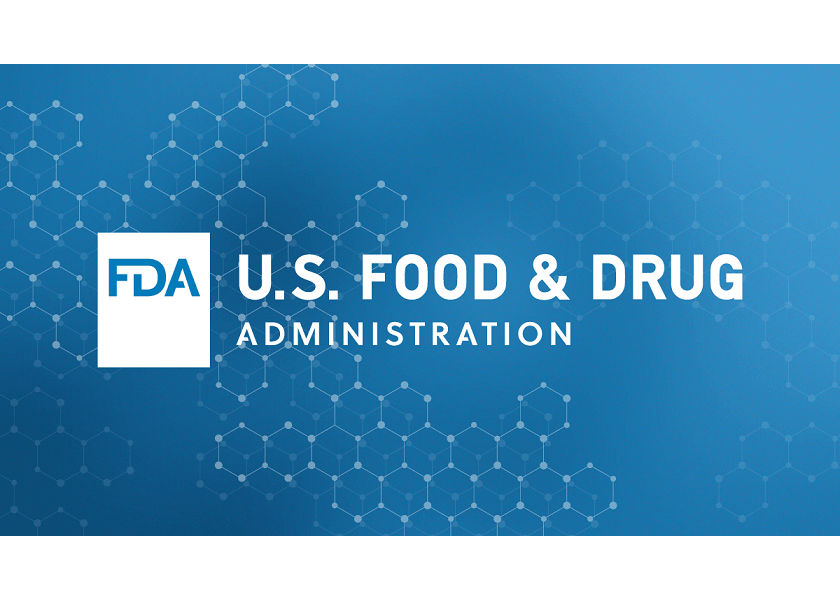Phibro Animal Health Defends Safety and Use of Mecadox

The FDA, through its Center for Veterinary Medicine (CVM), has taken two actions regarding Mecadox (carbadox), a drug marketed by Phibro Animal Health Corporation. Carbadox has been added to livestock feed since the 1970s to help combat diarrhea in young pigs.
"Today’s steps are the latest in a long history of attempted measures taken by the FDA relating to carbadox that we do not believe are based on solid science," the company said in a release on Tuesday.
In the first action, FDA has provided notice of a Federal Register publication issuing a final order to revoke the approved method for detecting residues of carbadox, the company shared in a release.
FDA has also provided notice of a second Federal Register publication proposing to withdraw approval of all new animal drug applications (NADAs) providing for use of carbadox in medicated swine feed and announcing an opportunity for Phibro to request a hearing on this proposal. This second action is based on CVM’s determination that there is no approved regulatory method to detect carbadox residues in the edible tissues of the treated swine.
"Phibro is extremely disappointed in the actions taken by the FDA and believes fully in the safety of Mecadox. Mecadox has been approved and sold in the United States for more than 50 years and is a widely used treatment for controlling bacterial diseases in swine, including Salmonella and swine dysentery, resulting in improved health and welfare for newly born and young pigs," the company said in the release.
In 2016, the FDA set in motion the first steps in a process to rescind its approval of carbadox based on its stated concerns about the persistence of carcinogenic residues, Phibro said. The company requested a hearing, and over the next four years continued an ongoing process of responding collaboratively and transparently to FDA’s inquiries to provide extensive and meticulous research and data confirming the safety of carbadox.
In July 2020, FDA voluntarily dismissed the 2016 proceeding and initiated a new process for review of the carbadox regulatory method, instead of following its own procedure and moving forward with a hearing that would resolve the parties’ differing interpretations of the science supporting the safety of carbadox, Phibro noted.
"While Phibro has continuously offered to meet with FDA to discuss the regulatory method and has offered viable alternative methods currently being used in other countries, it is clear that, instead, the FDA is ignoring the long history of safety that Phibro has established and reaffirmed through its most recent studies," the company said. "As the FDA publicly stated, going after the regulatory method 'is the most straightforward and least resource-intensive process for removing carbadox from the market.'”
Enteric disease in the nursery is one of the leading health challenges the pork industry faces.
In the National Pork Producers Council's final comments to FDA on May 26, 2022, it said, "Carbadox has been effectively used by most pork producers for decades to support animal health, while adhering to the 42-day withdrawal period. Since carbadox is mainly used for pigs at the nursery stage, the 42-day withdrawal period is likely extended to 60 days or more, resulting in an additional safety buffer against residues. Pork producers prioritize the avoidance of violative residues of all animal health products, as evidenced by the high level of participation in the industry’s Pork Quality Assurance Plus certification program and the extremely low level of all violative residues in market swine tested by the USDA’s Food Safety Inspection Service. Several key trading partners use a variety of methods to test for carbadox residues and, to our knowledge, have not found measurable residues which would result in the rejection of imported pork shipments."
NPPC also said removal of carbadox from the marketplace would inevitably increase the use of other antibiotics and increase the likelihood of difficult-to-control antimicrobial resistance in important bacterial pathogens.
Phibro pointed out that carbadox’s 50+ year history of safe use and unparalleled therapeutic efficacy, which has significant animal health and welfare implications, supports its continued use.
"Phibro will take appropriate action and next steps to continue to defend swine producers’ ability to use Mecadox to protect the health and welfare of their animals," the release said.
Read More About It:
Pork Industry Voices Concern Over FDA's Proposed Action on Carbadox







